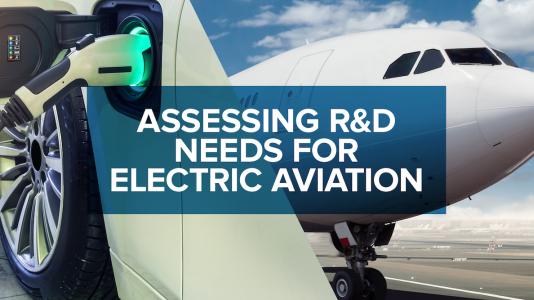
The world of aviation has seen a growing revolution in the last five years with the transition of jet engines to electric motors driven by declining costs and performance improvements of lithium-ion batteries. Electric propulsion offers numerous advantages, including lower fuel and maintenance costs, decreased noise and air pollution and unique aircraft designs.
Estimates suggest that a new mode of aviation services called Urban Air Mobility, or sometimes Advanced Air Mobility, will be a $9 billion market by 2030 and could be an $80 billion market by 2041.
But how do we get to this electrified future? A forward-thinking white paper released by the Argonne Collaborative Center for Energy Storage Science (ACCESS) outlines a clear set of battery requirements and research and development needs to accelerate the commercialization of electric propulsion—from air taxis in the near-term to 737 class aircraft in the long-term.
Learn more: Download the Joint Assessment of the R&D Needs for Electric Aviation white paper.
Argonne National Laboratory seeks solutions to pressing national problems in science and technology. The nation’s first national laboratory, Argonne conducts leading-edge basic and applied scientific research in virtually every scientific discipline. Argonne researchers work closely with researchers from hundreds of companies, universities, and federal, state and municipal agencies to help them solve their specific problems, advance America’s scientific leadership and prepare the nation for a better future. With employees from more than 60 nations, Argonne is managed by UChicago Argonne, LLC for the U.S. Department of Energy’s Office of Science.
The U.S. Department of Energy’s Office of Science is the single largest supporter of basic research in the physical sciences in the United States and is working to address some of the most pressing challenges of our time. For more information, visit https://energy.gov/science.